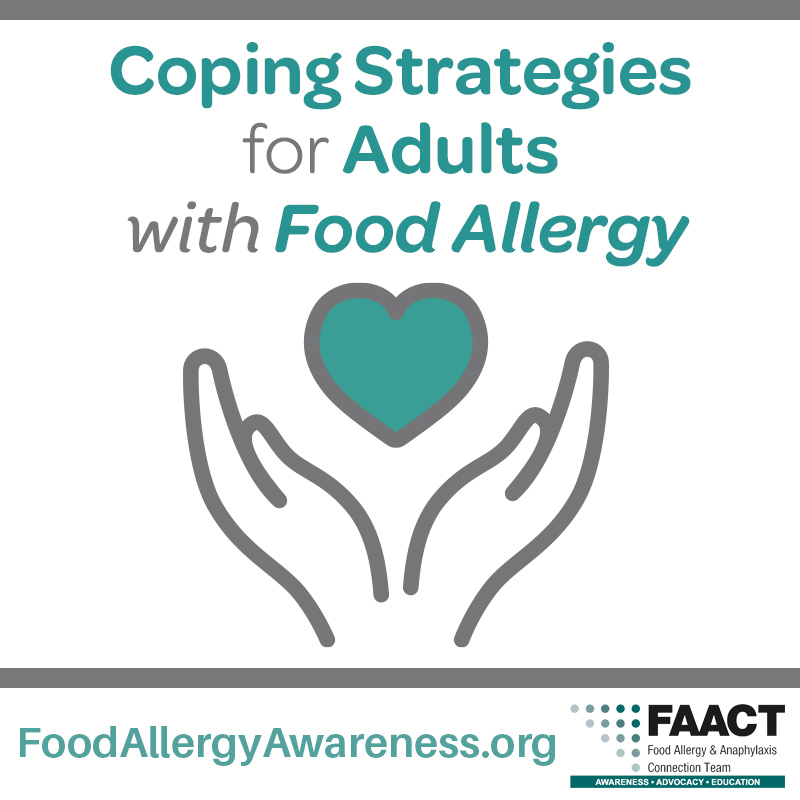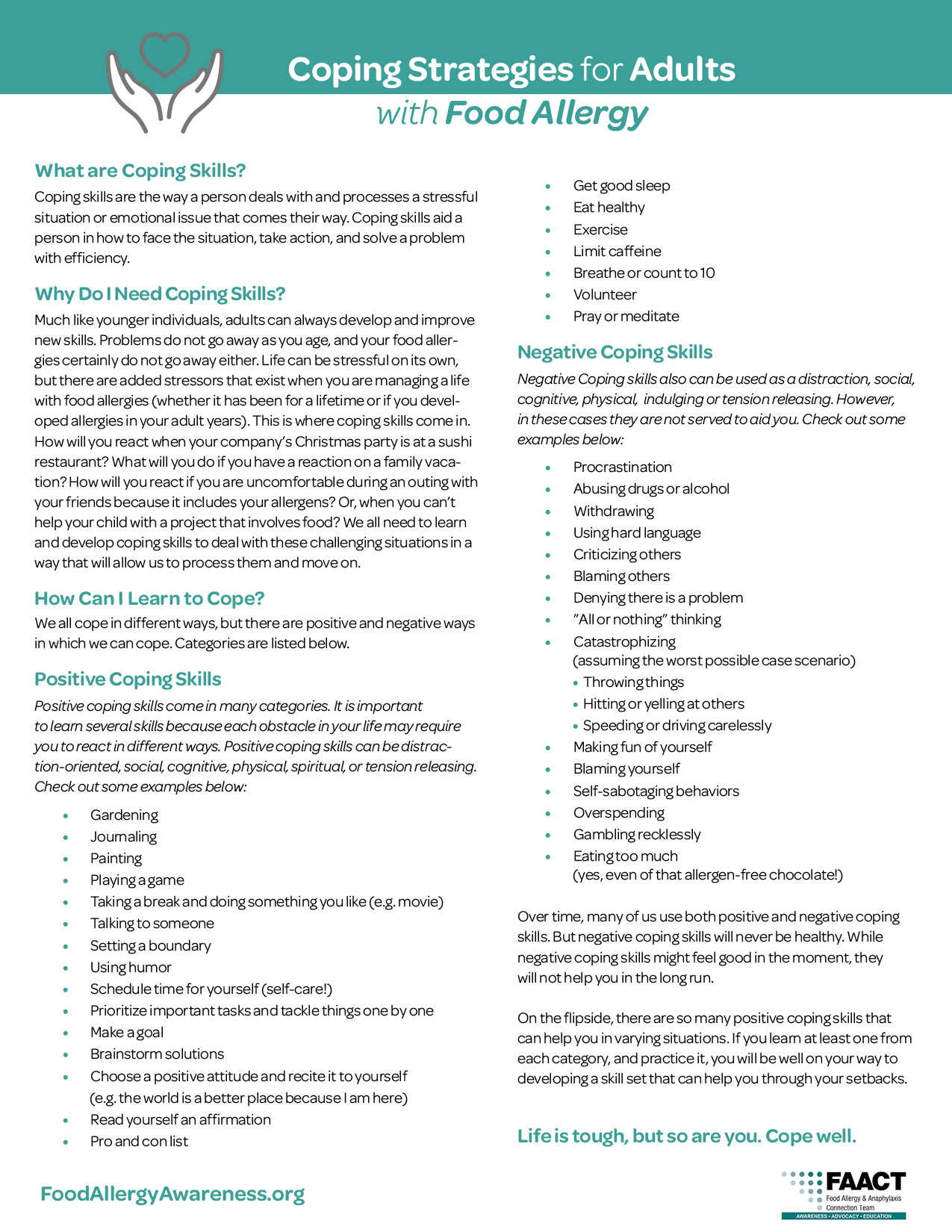Behavioral Health
Coping Skills
Back to Category View
Coping Strategies for Adults with Food Allergy
What are Coping Skills?
Coping skills are the way a person deals with and processes a stressful situation or emotional issue that comes their way. Coping skills aid a person in how to face the situation, take action, and solve a problem with efficiency.
Why Do I Need Coping Skills?
Much like younger individuals, adults can always develop and improve new skills. Problems do not go away as you age, and your food allergies certainly do not go away either. Life can be stressful on its own, but there are added stressors that exist when you are managing a life with food allergies (whether it has been for a lifetime or if you developed allergies in your adult years). This is where coping skills come in. How will you react when your company’s Christmas party is at a sushi restaurant? What will you do if you have a reaction on a family vacation? How will you react if you are uncomfortable during an outing with your friends because it includes your allergens? Or, when you can’t help your child with a project that involves food? We all need to learn and develop coping skills to deal with these challenging situations in a way that will allow us to process them and move on.
How Can I Learn to Cope?
We all cope in different ways, but there are positive and negative ways in which we can cope. Categories are listed below.
Positive Coping Skills
Positive coping skills come in many categories. It is important to learn several skills because each obstacle in your life may require you to react in different ways. Positive coping skills can be distraction-oriented, social, cognitive, physical, spiritual, or tension releasing. Check out some examples below:
- Gardening
- Journaling
- Painting
- Playing a game
- Taking a break and doing something you like (e.g. movie)
- Talking to someone
- Setting a boundary
- Using humor
- Schedule time for yourself (self-care!)
- Prioritize important tasks and tackle things one by one
- Make a goal
- Brainstorm solutions
- Choose a positive attitude and recite it to yourself (e.g. the world is a better place because I am here)
- Read yourself an affirmation
- Pro and con list
- Get good sleep
- Eat healthy
- Exercise
- Limit caffeine
- Breathe or count to 10
- Volunteer
- Pray or meditate
Negative Coping Skills:
Negative Coping skills also can be used as a distraction, social, cognitive, physical, indulging or tension releasing. However, in these cases they are not served to aid you. Check out some examples below:
- Procrastination
- Abusing drugs or alcohol
- Withdrawing
- Using hard language
- Criticizing others
- Blaming others
- Denying there is a problem
- ”All or nothing” thinking
- Catastrophizing (assuming the worst possible case scenario)
- Throwing things
- Hitting or yelling at others
- Speeding or driving carelessly
- Making fun of yourself
- Blaming yourself
- Self-sabotaging behaviors
- Overspending
- Gambling recklessly
- Eating too much (yes, even of that allergen-free chocolate!)
Over time, many of us use both positive and negative coping skills. But negative coping skills will never be healthy. While negative coping skills might feel good in the moment, they will not help you in the long run.
On the flipside, there are so many positive coping skills that can help you in varying situations. If you learn at least one from each category, and practice it, you will be well on your way to developing a skill set that can help you through your setbacks.
Life is tough, but so are you. Cope well.
Download FAACT's Coping Strategies for Adults with Food Allergy handout.
